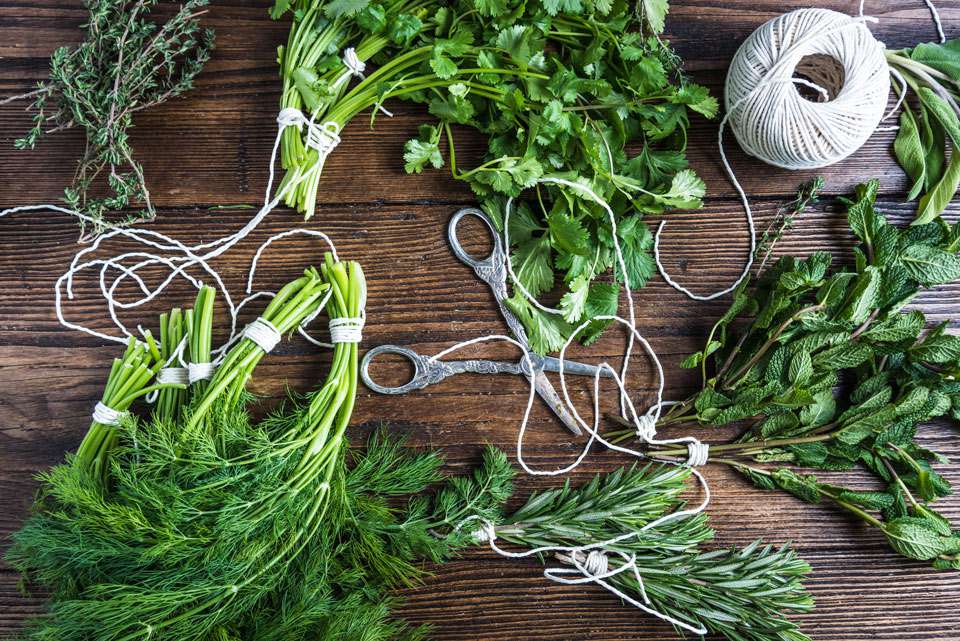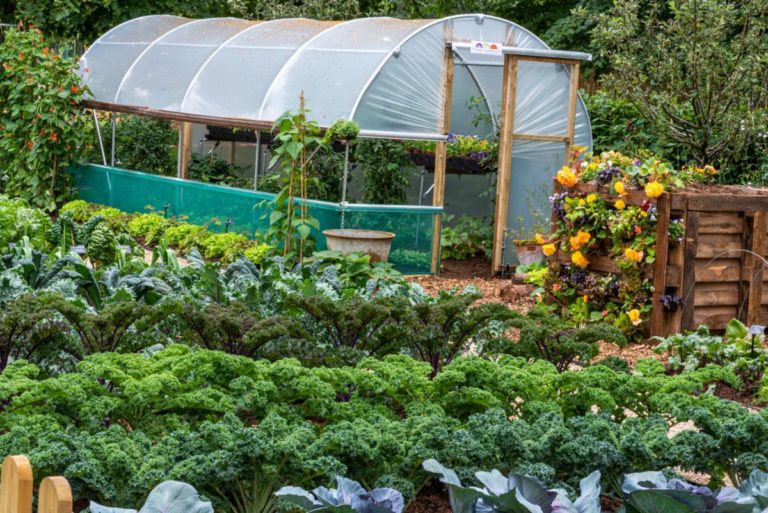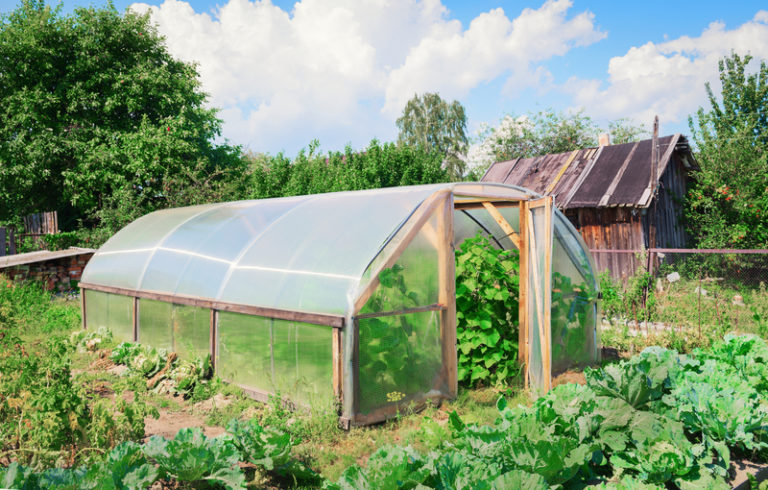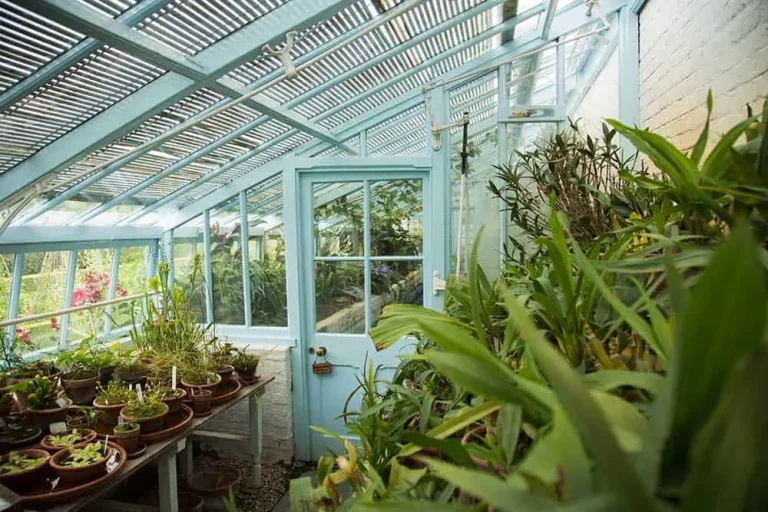Year-round access to fresh herbs is a luxury many of us take for granted, but it doesn’t have to be that way.
With a few simple techniques and tools, you can preserve your herb harvest and enjoy the flavors of homegrown herbs all year round, even when nature’s seasons turn cold and unforgiving.
Whether you grow your own herbs or forage from wild sources, preserving them is an essential skill to master if you want to live off-grid and self-sufficiently.
We will explore the various methods for preserving herbs, including drying, freezing, and infused oils, so that you can enjoy their culinary delights even in the dead of winter.
Drying
Drying herbs is one of the simplest and most effective ways to preserve them for year-round use. You can air-dry herbs by tying them in small bunches and hanging them upside down in a cool, dark place. Alternatively, you can use a food dehydrator to dry the herbs quickly and evenly.
There are two main methods for drying herbs: air-drying and using a food dehydrator.
For air-drying, tie the herbs in small bunches and hang them upside down in a cool, dark place.
This method allows the herbs to dry slowly and evenly, preserving their flavor and aroma.
It’s essential to avoid direct sunlight and high temperatures, as these can cause the herbs to lose their potency and flavor.
Alternatively, you can use a food dehydrator to dry the herbs quickly and evenly.
Dehydrators use circulating heat and airflow to dry the herbs without overheating them.
This method is ideal for delicate herbs like basil and mint, as it preserves their flavor and aroma without spoiling them.
Once dried, herbs can be stored in airtight containers and used in a variety of recipes throughout the year.
Freezing
Freezing herbs is another great way to preserve them for year-round use. Simply chop or strip the leaves from the stems and place them in an airtight container or freezer bag. This will help to keep the herbs fresh and retain their flavor and aroma.
Freezing herbs is an excellent way to preserve them for year-round use.
Simply chop or strip the leaves from the stems and place them in an airtight container or freezer bag.
This will help to keep the herbs fresh and retain their flavor and aroma.
When freezing herbs, it’s important to choose the right herbs for the job.
Some herbs, like basil and cilantro, freeze particularly well, while others, like parsley and dill, can become limp and lose their flavor when frozen.
To get the best results, choose herbs that are at their peak freshness and use them within six months of freezing for optimal flavor and texture.
In addition to chopping or stripping the leaves from the stems, you can also consider other preparation methods before freezing.
For example, you can make herb ice cubes by combining chopped herbs with water in an ice cube tray, then freezing them.
These ice cubes can then be added to dishes and soups for added flavor.
Another option is to make herb-infused oils by combining chopped herbs with a neutral oil like canola or grapeseed, then freezing the mixture.
These oils can be used in cooking and as a finishing touch for dishes.
When freezing herbs, it’s important to use an airtight container or freezer bag to prevent freezer burn and keep the herbs fresh.
You can also consider labeling the container or bag with the date and the type of herbs inside, so you can easily find them later.
Overall, freezing is a great way to preserve herbs for year-round use and adds an extra layer of flavor and texture to your dishes.]]]
Freezing herbs is an excellent method for preserving them for year-round use.
Not only does it allow you to enjoy your freshly picked or purchased herbs even when the seasons change, but it also adds an extra layer of flavor and texture to your dishes.
To freeze herbs, simply chop or strip the leaves from the stems and place them in an airtight container or freezer bag.
This will prevent freezer burn and keep the herbs fresh for longer.
Before freezing, you can also consider other preparation methods to enhance the flavor and texture of your herbs.
For example, you can make herb ice cubes by combining chopped herbs with water in an ice cube tray, then freezing them.
These ice cubes can then be added to dishes and sauces throughout the year, giving them a burst of fresh herby flavor.
Another option is to chop the herbs and mix them with olive oil, vinegar, or other seasonings to create a flavorful paste that can be stored in the freezer for up to six months.
Freezing herbs is easy and convenient, and it allows you to enjoy your herbs all year round, no matter the season.
With just a few simple steps, you can have a bounty of fresh herbs at your fingertips, ready to add to any dish you desire.
So go ahead, pick your favorite herbs, chop them up, and freeze them for a flavorful and delicious addition to any meal.
Infused oils
Infused oils are a great way to preserve herbs and use them throughout the year. To make infused oil, simply place dried or fresh herbs in a jar and cover them with a carrier oil (such as olive or coconut oil). Let the mixture sit for several weeks, shaking the jar occasionally, before straining the oil and using it as needed.
Infused oils are an excellent way to preserve herbs and enjoy their benefits throughout the year.
This easy-to-make oil can be used in a variety of ways, from cooking and baking to crafting and skincare.
To create infused oil, start by selecting fresh or dried herbs of your choice, such as lavender, chamomile, or peppermint.
Place the herbs in a clean glass jar, and cover them with a carrier oil like olive or coconut oil.
Seal the jar and let it sit in a cool, dark place for several weeks, gently shaking the jar every few days to ensure even infusion.
After the desired steeping time, strain the oil through a cheesecloth or a fine-mesh sieve into another clean glass container.
Use the infused oil in your cooking, baking, or apply it topically on your skin and hair.
You can also use it in homemade cosmetics, such as lotions, creams, and soaps.
This versatile oil can be used in a variety of ways, providing you with a natural and potent herbal remedy all year round.
Tinctures
Tinctures are another effective way to preserve herbs for year-round use. To make a tincture, soak dried or fresh herbs in a high-proof alcohol (such as vodka or rum) for several weeks, shaking the mixture occasionally. This will extract the medicinal properties and flavor of the herbs, which can then be stored in a dark glass bottle for later use.
Tinctures are a wonderful way to preserve herbs for year-round use, allowing you to enjoy their medicinal properties and flavor anytime you need them.
To make a tincture, start by selecting dried or fresh herbs of your choice, such as peppermint, chamomile, or echinacea.
Next, soak the herbs in a high-proof alcohol, like vodka or rum, for several weeks.
This will extract the medicinal properties and flavor of the herbs into the alcohol, creating a potent and concentrated tincture.
It’s important to shake the mixture occasionally during the soaking period to ensure even extraction.
Once the soaking period is complete, strain the tincture through a cheesecloth or a coffee filter to remove any solids, and store it in a dark glass bottle for later use.
Your tincture is now ready to use in teas, tonics, or as a dietary supplement.
When selecting your alcohol, choose a high-proof variety to ensure the best extraction of the herbs’ properties.
The tincture will last for several months to a year, depending on the herbs used and how you store it.
Powdered herbs
Another option for preserving herbs is to dry them and then grind them into a powder. This can be done using a spice grinder or mortar and pestle. Powdered herbs can be stored in airtight containers and used as needed in recipes.
Powdered herbs offer another convenient and versatile option for preserving herbs.
By drying the herbs and grinding them into a fine powder, you can create a long-lasting and easy-to-store form of the herb that can be used in a variety of recipes.
To dry the herbs, you can use a spice grinder or mortar and pestle, which will help to ensure that the herbs are ground evenly and finely.
Once the herbs are powdered, you can store them in airtight containers to maintain their flavor and aroma.
This makes it easy to add the powdered herbs to your favorite recipes as needed, without the need for fresh herbs.
Powdered herbs can be used to make herbal teas, infusions, and other beverages, providing a simple and convenient way to enjoy the health benefits and flavors of the herbs.
Overall, powdered herbs offer a flexible and convenient preservation method that can be used to preserve a wide range of herbs and enjoy them throughout the year.
Tea blends
Preserving herbs as tea blends is a great way to enjoy them throughout the year. Simply dry the herbs, then mix them together with other dried herbs or flowers to create a blend that can be stored in an airtight container. When you want to enjoy the tea, simply steep the blend in hot water.
Preserving herbs as tea blends is a fantastic way to savor their flavors throughout the year.
To create a tea blend, simply dry the herbs you’ve selected, then mix them together with other dried herbs or flowers of your choice.
This can be done by hand or with the help of a tea blender, depending on your preference.
Once you have your desired blend, store it in an airtight container to maintain its freshness.
When you’re ready to enjoy the tea, simply steep the blend in hot water for a few minutes, and indulge in its delicious flavors.
By preserving herbs as tea blends, you can enjoy their benefits and flavors year-round, without the need for frequent grocery shopping or freshness.
This is especially useful for those who live in areas with limited access to fresh herbs, or for those who prefer the convenience of having their herbs pre-dried and ready to use.
Tea blends can be easily customized to suit your tastes and preferences, allowing you to experiment with different combinations of herbs and flowers to find your perfect blend.
Whether you’re looking for a soothing sleep aid, an invigorating morning pick-me-up, or simply a delicious and comforting beverage, tea blends have got you covered.
Infused honey
Herbs can also be infused into honey to create a medicinal and delicious preserve. To make infused honey, simply combine dried or fresh herbs with honey and let it sit for several weeks, shaking the jar occasionally. This will allow the medicinal properties of the herbs to infuse into the honey, which can then be used as a natural sweetener and medicinal remedy.
Infused honey is a versatile and potent natural remedy that can be easily prepared at home.
By combining dried or fresh herbs with honey, you can create a medicinal preserve that can be used to sweeten your tea, bake with, or simply enjoy as a spoonful of goodness.
The process of infusing herbs into honey is simple: simply combine the herbs of your choice with honey in a jar, and let it sit for several weeks, shaking the jar occasionally.
This will allow the medicinal properties of the herbs to infuse into the honey, creating a powerful and delicious remedy that can be used to soothe coughs, alleviate sore throats, and support overall health and wellness.
Some popular herbs to infuse into honey include lemon balm, chamomile, and ginger, each of which offers its own unique set of health benefits.
Lemon balm, for example, is known for its calming and soothing properties, while chamomile is often used to support digestion and reduce inflammation.
Ginger, on the other hand, is known for its warming and invigorating properties, and can be used to support the immune system and alleviate nausea.
Once the infused honey is ready, it can be stored in an airtight container in the fridge for up to a month, or frozen for up to six months.
This means you can enjoy the benefits of infused honey long after the freshness of the herbs has faded.
To use the infused honey, simply spread it on toast or crackers, add it to your tea or coffee, or use it as a sweetener in baked goods.
With its delicious flavor and medicinal benefits, infused honey is the perfect addition to any health-conscious diet.>] Infused honey is a delicious and medicinal preserve that can be made by combining dried or fresh herbs with honey.
This creates a sweet and flavorful mixture that can be used to soothe coughs, alleviate sore throats, and support overall health and wellness.
Some popular herbs to infuse into honey include lemon balm, chamomile, and ginger, each of which offers its own unique set of health benefits.
Lemon balm, for example, is known for its calming and soothing properties, which can help to reduce stress and anxiety.
It also has antiviral and antibacterial properties, which can help to support immune function.
Chamomile, on the other hand, is known for its soothing and anti-inflammatory properties, which can help to calm upset stomachs and support digestion.
Ginger, meanwhile, is known for its warming and energizing properties, which can help to support circulation and boost the immune system.
To make infused honey, simply combine dried or fresh herbs with honey in a clean glass jar.
Cover the jar with a lid and let it sit in a cool, dark place for several weeks to allow the herbs to steep and infuse their flavor and medicine into the honey.
Once the honey has been infused, it can be strained through a cheesecloth or fine-mesh sieve to remove any solids.
Infused honey can be used in a variety of ways.
It can be spread on toast or bread, added to tea or yogurt, or used as a natural sweetener in baking.
It can also be applied topically to soothe sore throats and skin irritations.
Infused honey can be taken internally to support immune function, digestion, and overall health.
When selecting an infused honey, look for jars that are labelled with the type of herbs used and that have a clear honey color.
Avoid jars that are cloudy or have visible mold, as these may be signs of spoilage.
Herbal vinegars
Another way to preserve herbs is to make herbal vinegars. To make a herbal vinegar, soak dried or fresh herbs in a vinegar-based liquid (such as apple cider vinegar) for several weeks, shaking the jar occasionally. This will extract the medicinal properties and flavor of the herbs into the vinegar, which can then be used as a salad dressing or as a marinade for meats.
To create a delicious and medicinal herbal vinegar, simply soak dried or fresh herbs in a vinegar-based liquid, such as apple cider vinegar, for several weeks.
The herbs can be either dried or fresh, but fresh herbs will yield more vibrant flavors and aromas.
As you soak the herbs, be sure to shake the jar occasionally to ensure that the herbs are fully saturated with the vinegar.
This will help extract the medicinal properties and flavor of the herbs into the vinegar, creating a potent and flavorful liquid.
Once the herbal vinegar has been sitting for several weeks, you can strain the liquid through a cheesecloth or fine-mesh sieve to remove the solids.
You can then use the herbal vinegar as a salad dressing, marinade for meats, or as a flavorful addition to soups, stews, and other dishes.
The vinegar will keep for several months in the refrigerator, allowing you to enjoy its benefits and flavors for an extended period of time.
Some popular herbs to use in herbal vinegars include mint, basil, rosemary, and thyme.
Each of these herbs has its own unique flavor and medicinal properties, so feel free to experiment with different combinations to find your favorite.
For example, a mint-basil herbal vinegar is perfect for dressing salads or as a marinade for chicken, while a rosemary-thyme herbal vinegar is great for adding flavor to soups, stews, and roasted meats.
Making your own herbal vinegar is easy and can be a fun and rewarding process.
Simply soak the herbs in the vinegar for a few weeks, then strain and enjoy.
You can also get creative with different herbs and flavor combinations to find your perfect blend.
Try using different types of vinegar, such as apple cider or white wine vinegar, to change the flavor profile of your herbal vinegar.
Experiment with different spices and sweeteners, such as honey or agave nectar, to add even more flavor and depth to your herbal vinegar.
Want More? Dive Deeper Here!
Hey there! If you’re the type who loves going down the rabbit hole of information (like we do), you’re in the right spot. We’ve pulled together some cool reads and resources that dive a bit deeper into the stuff we chat about on our site. Whether you’re just killing time or super into the topic, these picks might just be what you’re looking for. Happy reading!






